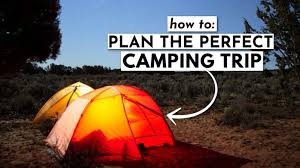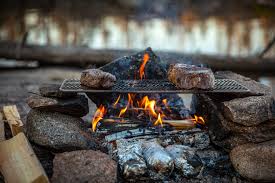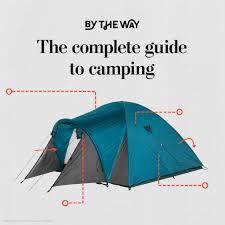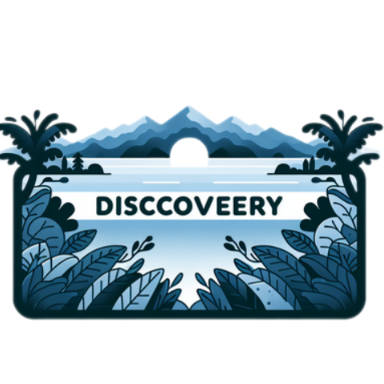Camping is an incredible way to connect with nature, unwind from daily stress, and enjoy outdoor adventures. For first-time campers, the idea of spending a night under the stars can be both exciting and daunting. With the right preparation and knowledge, your first camping trip can be a memorable experience. This guide provides essential camping tips for first-time campers in 2024 to ensure your outdoor adventure is safe, comfortable, and enjoyable.
1. Planning Your Camping Trip

1.1 Choose the Right Campsite
a. Research Campsites: Before heading out, research various campsites that suit your preferences and skill level. Whether you prefer a primitive site in the wilderness or a more developed campground with amenities, choose a location that aligns with your comfort level and the activities you want to enjoy.
b. Book in Advance: Many popular campsites require reservations well in advance. Check availability and make reservations early, especially during peak camping seasons. Websites like ReserveAmerica or Recreation.gov can help you find and book campsites.
1.2 Check the Weather
a. Monitor Weather Forecasts: Check the weather forecast for your camping dates and location. Be prepared for changes in weather conditions, such as rain or extreme temperatures, and plan accordingly.
b. Pack Accordingly: Based on the weather forecast, pack appropriate clothing and gear. Layering is key to adapting to fluctuating temperatures, and waterproof gear is essential if rain is expected.
2. Essential Camping Gear
2.1 Invest in Quality Gear
a. Tent: Choose a tent that suits your needs. For first-time campers, a three-season tent is a good option as it offers protection from various weather conditions. Ensure the tent is easy to set up and spacious enough for your group.
b. Sleeping Gear: Invest in a comfortable sleeping bag and sleeping pad. A sleeping bag with the appropriate temperature rating will keep you warm at night. A sleeping pad provides insulation and cushioning from the ground.
c. Cooking Equipment: Bring a portable stove or campfire equipment if cooking at the campsite. Include cookware, utensils, and cleaning supplies. For a simpler option, consider pre-packaged meals or freeze-dried camping food.
2.2 Safety and Navigation Tools
a. First Aid Kit: A well-stocked first aid kit is essential for handling minor injuries and emergencies. Include bandages, antiseptic wipes, pain relievers, and any personal medications.
b. Navigation Tools: Carry a map, compass, or GPS device to help you navigate the campsite and surrounding trails. Even if you’re staying in a developed campground, it’s important to have reliable navigation tools.
3. Campfire and Cooking Tips

3.1 Building a Safe Campfire
a. Follow Regulations: Check local regulations regarding campfires. Some areas may have fire bans due to dry conditions or other hazards. Always follow the rules to prevent wildfires and ensure your safety.
b. Build a Safe Fire: If campfires are permitted, build your fire in a designated fire ring or pit. Use dry, seasoned wood and keep the fire small and manageable. Never leave a fire unattended and make sure it is completely extinguished before leaving.
3.2 Cooking and Food Safety
a. Plan Your Meals: Plan your camping meals in advance and create a menu that is easy to prepare and cook. Include a mix of fresh ingredients and non-perishable items.
b. Store Food Properly: Use bear-proof containers or hang food out of reach of wildlife to prevent animals from scavenging. Keep perishable items in a cooler with ice packs and avoid leaving food unattended at the campsite.
4. Camping Etiquette and Safety
4.1 Respect Nature and Other Campers
a. Leave No Trace: Follow the Leave No Trace principles to minimize your impact on the environment. Pack out all trash, leave natural features as you found them, and avoid damaging vegetation.
b. Be Courteous: Respect other campers by keeping noise levels down and following campground rules. If you’re in a shared space, be considerate of others’ privacy and comfort.
4.2 Wildlife Safety
a. Store Food Securely: Properly store food and trash to avoid attracting wildlife. Bears, raccoons, and other animals can become aggressive if they associate humans with food.
b. Keep Your Distance: Observe wildlife from a distance and avoid feeding or approaching animals. Familiarize yourself with local wildlife and safety tips specific to the area you’re camping in.
5. Outdoor Activities and Entertainment
5.1 Plan Activities
a. Hiking and Exploration: Research nearby trails and attractions to enhance your camping experience. Carry a daypack with essentials like water, snacks, a map, and a first aid kit for any hikes or explorations.
b. Campfire Entertainment: Bring along some campfire-friendly activities, such as a guitar for sing-alongs, a journal for reflections, or marshmallow roasting supplies. Games like cards or board games are also great for evening entertainment.
5.2 Stay Active and Engaged
a. Engage with Nature: Take time to enjoy the natural beauty around you. Go birdwatching, stargazing, or simply relax by a lake or river. Immersing yourself in nature can be a refreshing and rewarding experience.
b. Document Your Trip: Capture memories of your camping adventure with photos or a travel journal. Documenting your experiences will help you remember the highlights of your trip and share them with friends and family.
6. Post-Camping Tips

6.1 Clean Up Thoroughly
a. Tidy the Campsite: Before leaving, clean up your campsite thoroughly. Dispose of trash properly and leave the site as you found it. Check for any forgotten items or litter.
b. Inspect Gear: Inspect and clean your camping gear after each trip. Dry out your tent and sleeping bag to prevent mold and mildew, and check for any damage that may need repairs.
6.2 Reflect and Plan
a. Evaluate Your Experience: Reflect on your camping experience and note what worked well and what could be improved. This will help you better prepare for future camping trips and enhance your overall enjoyment.
b. Plan Future Trips: Use your experience to plan future camping adventures. Explore new destinations, try different camping styles, and continue to build on your skills and knowledge.
Conclusion
Camping for the first time can be an exciting and rewarding adventure when you are well-prepared. By following these essential camping tips for first-time campers in 2024, you can ensure a safe, enjoyable, and memorable outdoor experience. From planning and packing to cooking and respecting nature, each aspect of camping contributes to the overall enjoyment of your trip. Embrace the beauty of the great outdoors, make lasting memories, and let your first camping adventure inspire many more to come. Happy camping!




